OUR SCIENCE
We will strive to become a global company that contributes to improving the quality of life.
Cancer Drug Resistance

Patients for whom standard anticancer treatments fail get reduced treatment effect from existing anticancer drugs or lack drug responsiveness due to anticancer drug resistance.
Cancer chooses a way to survive on its own by avoiding anticancer drugs such as viruses and develops a mechanism of continuous anticancer drug resistance, which eventually leads to the recurrence of cancer due to anticancer drug resistance.
There are two main mechanisms for developing anticancer drug resistance: intrinsic resistance, in which cancer cells do not show drug response due to the presence of resistant cancer cells from the initial administration of the drug; and acquired resistance, in which the cancer cells show anticancer drug resistance due to cancer cell proliferation by selecting a way to survive against the drug after the initial response through continuous administration of the drug.
- Cancer cell formation
- Death after anticancer treatment
- Acquisition of anticancer
treatment resistance
-
Intrinsic Resistance
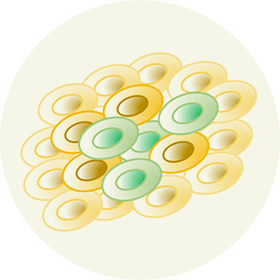
-
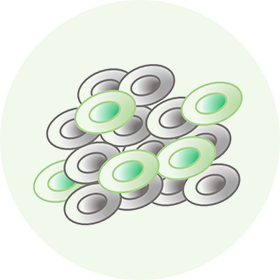 Dead cancer cells
Surviving cancer cells
Dead cancer cells
Surviving cancer cells
-
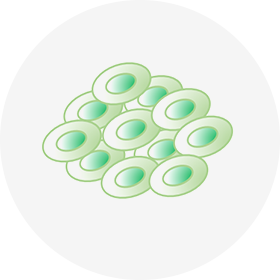 Reproduction of
Reproduction of
surviving cancer cells
-
Acquired Resistance
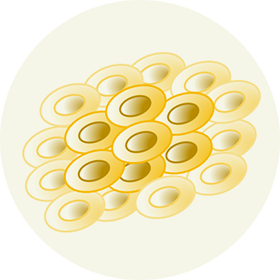
-
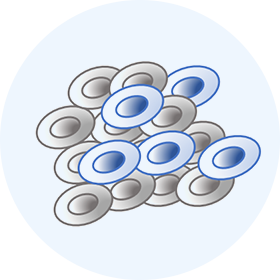 Dead cancer cells
Surviving cancer cells
Dead cancer cells
Surviving cancer cells
-
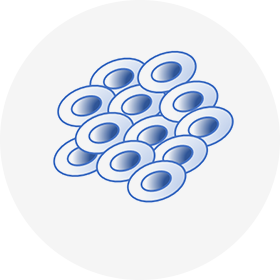 Reproduction of
Reproduction of
surviving cancer cells
-

- Genetic modification
-

- Increased resistance-inducing proteins
-

- Complex signaling system operation